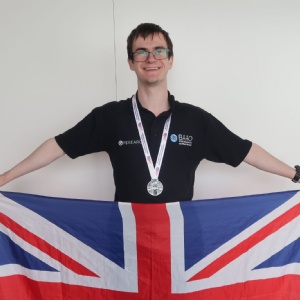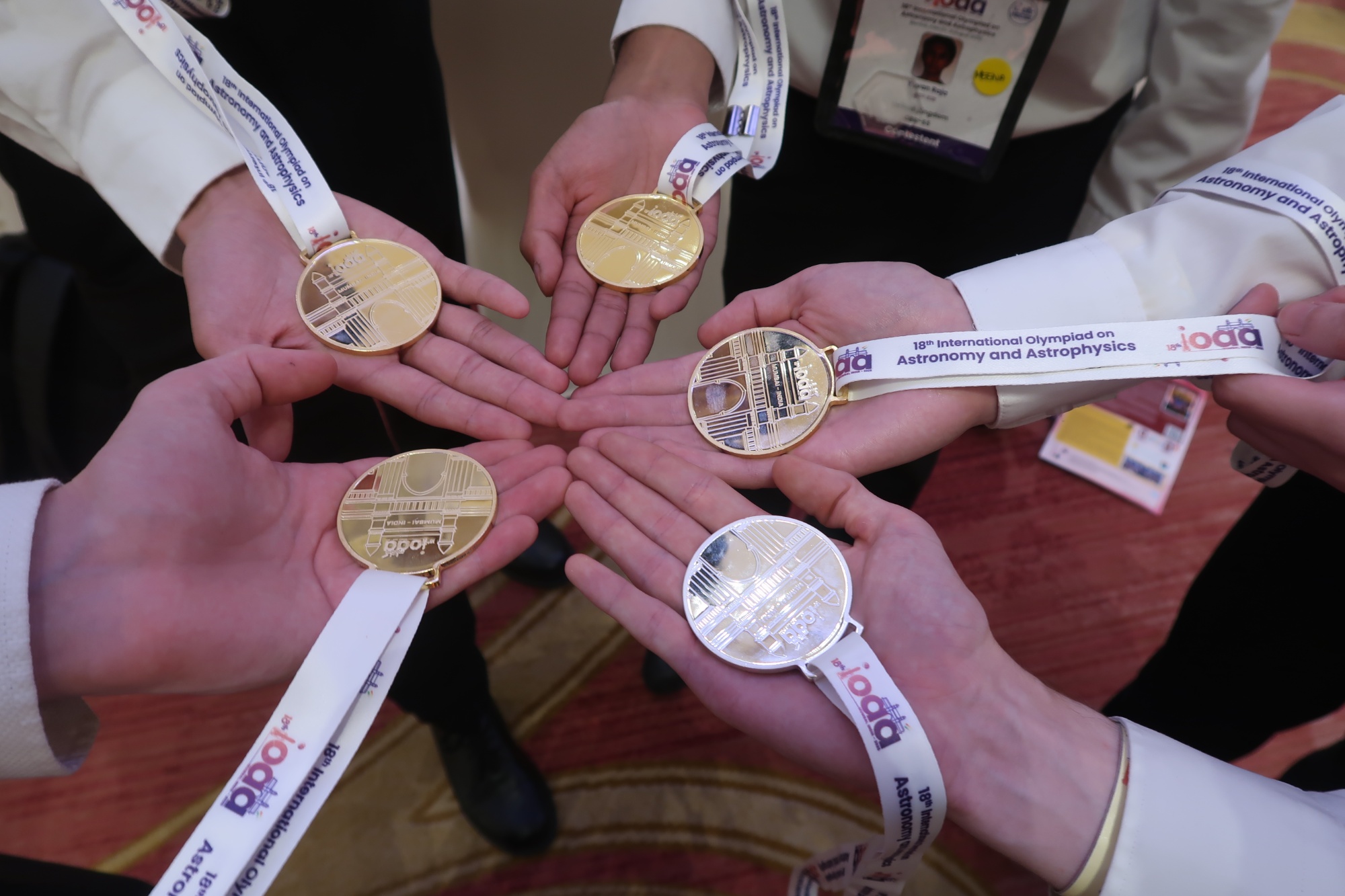
George D Triumphs at the International Olympiad on Astronomy & Astrophysics
Published on 29/10/25

George D tells us all about his silver medal win at the International Olympiad on Astronomy and Astrophysics.
I have recently returned from the International Olympiad on Astronomy and Astrophysics (IOAA), having had a fantastic time and achieved a silver medal as part of the UK team, which was placed joint second in the world with this year’s hosts, India. The IOAA is a competition which tests students' abilities across Astronomy and Astrophysics, including exams on theory, data analysis, and observation, which this year (2025) included telescope, planetarium and skymap rounds. The IOAA isn’t only about the tests, it also offers a wonderful opportunity to talk to and get to know people from different countries throughout the world. This year, teams from over 60 countries took part. I especially enjoyed the group competition, where I had to work with students from other countries to work out the mass of the galaxy using measurements we took with a horn antenna, and the cultural night, where people gave performances relating to their countries, including music and dance. As well as this, as the Olympiad was this year hosted in Mumbai, India, we got to go on excursions into and around the city, including going to universities, a museum and a theme park, experiencing the legendary Mumbai traffic and the torrential monsoon, both completely new to me.

After the camp, to my surprise, I was informed that I had been selected to be part of the UK team. We were then given further training, both online and at a camp at the University of Cambridge, where we also got to know each other better. At the camp, as well as training, we went punting, and somehow managed to end up perpendicular to the river several times, although luckily, unlike in the year our team leaders competed, we did not knock any small children into the Cam!
I would strongly recommend that any student who enjoys Physics has a go at some of the competitions mentioned above, even if you don’t expect to do very well. Whilst I had done a lot of questions on Isaac Physics in Year 12 (and I’d really recommend that you look at Isaac Physics anyway), the only thing I did specifically to prepare for BAAO and BPhO was a few past papers and going through the self-preparation documents on the website. The questions posed in the tests are generally well written and interesting, I’ve even gone back later to have a look at questions I didn’t get time to complete during the time available. Note that as well as the tests I mentioned, there are also the BAAO round one and the Astro Challenge, although Stephen Perse Cambridge Sixth Form didn’t offer these when I was doing the other tests, I’m sure that if there was enough interest the teachers would be happy to let students take them. There are also other competitions run by BPhO specifically aimed at Year 12.
This process has greatly improved my understanding of Astronomy and Astrophysics, as well as Physics in general and problem solving. As well as this, I have made many new friends throughout, some of whom (including our team guide, who made sure we knew where we needed to be and that we were on time whilst we were in India) are even going to go to the University of Cambridge like I will in October 2025. I think it is important to remember that, just because your UCAS application may have been submitted by the time you do something, it doesn’t mean it isn’t worth doing. Even if universities don’t hear that you’ve done something, it can still be both useful and enjoyable, and I think the increase in my understanding in Physics definitely helped with my A Levels, even though the style of the Olympiad tests is different from A Level tests.
Of course this whole process wouldn’t have been possible without the support of my friends, parents and teachers, as well as volunteers both in the UK and India, and funding of BPhO by G-Research and of the IOAA this year by the Indian government. Thank you to them all.